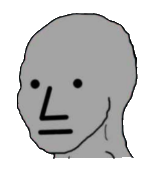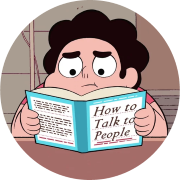|
Because I'm not sure I understand fully, and that seems like it might be kinda important. I'm not going to try to ask for an Econ 101 here; I do come to this question with some prior knowledge, but it seems to me that there's a lot of confusion about economics stemming from suppositions about this fundamental assumption - that we know what we're talking about when we talk about wealth and its manifestations - money, capital, stock, debt, etc. This perceived issue is stemming either from a widespread lack of understanding or - much more likely - my own lack of understanding. This is not to say that I don't have my own conception of wealth - otherwise, why would I post this in a debate forum? I want people to point out where I'm wrong with this, so I can push back and forth and - you know - have a debate. So: Isn't it the case that wealth is human work at its most fundamental level? That is - money, capital, stock, debt, etc. - these are all fundamentally representations of human work. A man who is alone on a desert island may be said to possess wealth. He may have tools which he has made, and food which he has gathered. If he encounters another person, these items may be bartered or sold. This basic concept doesn't decohere at larger scales or lose importance, either - fundamentally, wealth = work. Such a concept puts the lie to the notion that wealth can be created out of thin air. A government which prints money by fiat in fact subdivides extant representations of a finite wealth - this has its uses, but it does not create wealth except that it may, by increasing liquidity, promote investment enabling work which in turn produces wealth. Inflation increases liquidity by devaluing currency in favor of investment. Risk is a form of human work. A random distribution of investments will tend to neither increase or decrease wealth, but when one works to determine where best to risk investment, that work may produce wealth just as a farmer's decision to plant crops in a flood plain may or may not produce wealth. The amount of wealth produced by work is its value. Value is a product of your work's demand in its best available market and its liquidity. If you have dug up gold but have nowhere to sell it, then its value is only that which you yourself can use the gold for. If you have dug up gold and have a market for it but the boat you want to buy with your gold is sold by one who already has enough gold, you will have to first convert your gold into capital the boat seller desires, lowering the liquidity of your gold and thus its value to you. Thus is wealth.
|
|
|
|

|
| # ? Apr 29, 2024 15:21 |
|
Very specifically wealth is not human labour. It is a marshalling tool for human labour but it is not labour itself. It is produced by human labour, but it is not the labour itself. This is relevant because if you have some method of extracting wealth from other people's labour, then you are able to amass more of it, marshal more labour, exert more power over others, all without actually doing anything yourself. You acquired the wealth by the work of others, you spend it to direct the work of others, you have the control, others do the work. To use your example, if I have the tools, and you want to use them to build something, I can loan you the tools, but in exchange I might demand you build something for me too. Now you might say this is fair because I made the tools, but what if I didn't make the tools, what if I inherited them? What if I, by virtue of owning the tools and being the one in a position to say whether or not you get to use them, demand an unfair amount of work from you in exchange? What if, the thing you need to use them to build is a house, and if you don't you'll be out in the cold. How long can you go without them? What if I can do this with hundreds of people? Which of us has more power? Which of us is doing the work? Which of us is going to get wealthier? Also if you wanna just advocate for goldbuggery you're not doing it very subtly. OwlFancier fucked around with this message at 03:19 on Feb 2, 2019 |
|
|
|
OwlFancier posted:Very specifically wealth is not human labour. It is a marshalling tool for human labour but it is not labour itself. It is produced by human labour, but it is not the labour itself. OwlFancier posted:This is relevant because if you have some method of extracting wealth from other people's labour, then you are able to amass more of it, marshal more labour, exert more power over others, all without actually doing anything yourself. You acquired the wealth by the work of others, you spend it to direct the work of others, you have the control, others do the work. OwlFancier posted:To use your example, if I have the tools, and you want to use them to build something, I can loan you the tools, but in exchange I might demand you build something for me too. Now you might say this is fair because I made the tools, but what if I didn't make the tools, what if I inherited them? What if I, by virtue of owning the tools and being the one in a position to say whether or not you get to use them, demand an unfair amount of work from you in exchange? What if, the thing you need to use them to build is a house, and if you don't you'll be out in the cold. How long can you go without them? What if I can do this with hundreds of people? Which of us has more power? Which of us is doing the work? Which of us is going to get wealthier? OwlFancier posted:Also if you wanna just advocate for goldbuggery you're not doing it very subtly.
|
|
|
|
Also before I forget - something to touch on later, as I'm not sure how it fits in - knowledge seems like work which behaves a little differently than other forms of wealth. It can be multiplied without diminishing it. If you share knowledge, you quite simply inject more wealth into the system. The same is true of any other worker - their work is injecting new wealth into the system daily. With knowledge, though, you're doing this very, very efficiently - at its best, knowledge sharing expends only the time of the involved parties and some of their physical energy (usually relatively little). Public schooling may well have some of the best returns of any government program, ever. However, given the stupendous efficiency with which knowledge work injects wealth into an economy, why is it that libraries, open source licensing initiatives, pure research, and the like are not similarly championed, funded, and otherwise encouraged? Why are patents allowed to degrade this highly efficient means of improving economic growth? I don't have answers to these questions yet - usually a sign of a chink in the structure I'm imagining...
|
|
|
|
Eschat0n posted:However, given the stupendous efficiency with which knowledge work injects wealth into an economy, why is it that libraries, open source licensing initiatives, pure research, and the like are not similarly championed, funded, and otherwise encouraged? Why are patents allowed to degrade this highly efficient means of improving economic growth? I don't have answers to these questions yet - usually a sign of a chink in the structure I'm imagining... that's literally what public universities are for
|
|
|
|
Friendship.
|
|
|
|
Eschat0n posted:A man who is alone on a desert island may be said to possess wealth. He may have tools which he has made, and food which he has gathered. If he encounters another person, these items may be bartered or sold. This basic concept doesn't decohere at larger scales or lose importance, either - fundamentally, wealth = work. Are you more interested in "capital", "value" or "abundance" here?
|
|
|
|
I like Chris Rock's definition of wealth. Bit dated but still relevant. https://www.youtube.com/watch?v=n8BtHZWGB8c (slightly  ) )
|
|
|
|
Indeterminacy posted:I'm not sure that we would call this kind of exchange a use of "wealth", as such. Wealth has connotations of surplus, whereas one's tools and food on a desert island are never excessive - one barters them as valuable precisely because they are not readily abundant. What is the difference, economically-speaking, between a man on a desert island with no tools, and a man on a desert island with tools? I don't think wealth has connotations of surplus - or at least, it is only a loose connotation, and not strictly required. I think capital is a type of work storage. Value is a property of work. Abundance I haven't even started to consider yet.
|
|
|
|
Risk is not a form of work. Risk in its simplest form is just a prediction of success or failure. You can do things to reduce or increase risk but it is not always separate from the base work itself.
|
|
|
|
There is no difference between money extracted from the labour of others and money created by fiat, both motivate people to work when spent. Also how does money remain "stored work" indefinitely? Money doesn't go off, whereas work can be undone or be temporary. You don't set fire to money when that happens. The two are related but it's not a strict relationship, you can create money without work and still spend it, you can do work and not generate money. Eschat0n posted:Also before I forget - something to touch on later, as I'm not sure how it fits in - knowledge seems like work which behaves a little differently than other forms of wealth. It can be multiplied without diminishing it. If you share knowledge, you quite simply inject more wealth into the system. The same is true of any other worker - their work is injecting new wealth into the system daily. With knowledge, though, you're doing this very, very efficiently - at its best, knowledge sharing expends only the time of the involved parties and some of their physical energy (usually relatively little). Public schooling may well have some of the best returns of any government program, ever. It's because people make money from creating scarcity, op. Knowledge can be freely transferred but it can also be monetized and controlling access to it allows you to extract money from other people. Same reason you don't give away surplus food, because if you did that people wouldn't need to buy it. OwlFancier fucked around with this message at 16:56 on Feb 2, 2019 |
|
|
|
To answer this question I think you should start with thinking about what property or ownership actually is OP.
|
|
|
|
Eschat0n posted:Value is a property of work.
|
|
|
|
Read Capital, OP.
|
|
|
|
Eschat0n posted:"I am able to amass more work." That sounds odd - how do you amass a verb? Work is a noun. The sense of work as a verb is secondary to its use as a noun, according to the Online Etymology Dictionary. https://www.etymonline.com/word/work The Online Etymology Dictionary posted:a secondary verb formed relatively late from Proto-Germanic noun *werkan I point this out because if someone is going to be pedantic and wrong about something as simple as a word's usage in ordinary speech, attempts to recreate vast social and economic systems using spherical-cow logic is probably not going to make much sense. The phrasing of the question is simplistic to the point of being silly. If someone was stuck on a desert island, and was constructing tools for themselves... when has this happened? Why is this a good starting point? Have you ever been on a desert island? Have you ever tried to build a tool by yourself? How is this reverse-engineering of the fact that everything we make, build, or use the result of complex social systems supposed to explain anything? It is somewhere between naive and disingenuous to try to look at the situation of someone like Bill Gates, who accumulated 100 billion dollars of wealth through leading a company that employs 100,000+ people, and which was dependent on social factors (usage of preexisting technology, much of it developed with public finances), market conditions (the barriers of entry to large business ventures) and the presence of speculative capital based on inherited wealth, and say that really, the best way to explain Bill Gates' 100 billion dollars is that he is just a yeoman farmer whittling spoons on his farm and bringing them to market. Notice I don't think that it is necessarily morally wrong to make this comparison, it just doesn't make sense. It is like trying to explain human biology by explaining us as a collection of cells...theoretically, yes, that is what we are, but it is harder to explain the heart beating by explaining how a billion autonomous cells are directed, than it is to explain the heart as a heart. So what is wealth really, if it isn't the objective measure of how much labor work an independent farmer has put into raising a bag of potatoes?
|
|
|
|
Baby don't tax me, don't tax me no more.
|
|
|
|
A lot of wealth represents work, but you've completely ignored the wealth of natural resources. Take your guy on the desert island and all his tools, put him in the middle of the sea, is he still as well off as he was on the island? Take your guy on the desert island and all his tools, now fill the island with other people who own all the food-bearing trees and will shoot your guy if he tries to take any, is he still as well off? He still has all the same product of his prior labor, he still has just as much capacity to work in future, but he is clearly much worse off now. Availability of resources is a significant part of wealth, and laying ownership claim to natural resources (especially land-area) is really at the core of how capitalism makes your work my wealth. (Edit: particularly the implicit threat of violence that ownership carries. Edit2: the threat of violence creates wealth out of "thin air" for me, by making you give me your work and any natural resources it may extract. A government printing money is essentially this threat of violence three steps removed.) Edit3: Counterproposal: in a society, wealth does not represent human work, it represents human capacity to inflict violence at some level of indirection. roomforthetuna fucked around with this message at 18:15 on Feb 2, 2019 |
|
|
|
Eschat0n posted:
What you are describing is a social relationship. Without this social relationships the "value" of the capital that you amass is meaningless. We can see this by examining your claim that the value of a car is determined by the opportunity cost a hypothetical buyer faces if they build the car themselves. First of all, most people have neither the time, the skills, nor the facilities to build their own car. Even if you personally were capable of building your own car, this alone would not get you must of a price discount. As long as most other people still can't build their own car, it doesn't necessarily make sense for the car dealer to sell you the car for cheap when he knows that there are plenty of people out there who have no choice but to buy the car at the price he wants to sell it. The point here being that even if you were an extraordinarily productive individual who was capable of manufacturing your own motor vehicle, you'd probably still end up paying more or less full price if you do decide to buy a new car. That's because the prices of these items are determined by social averages, not individual one off trades. If most people on the market are judged likely to pay $30,000 for a new car then the dealership is unlikely to sell you the same car for $10,000 no matter how many times you insist you could build one yourself. So as this all implies, value emerges from the interactions of an entire marketplace, not the actions of a lone individual on a desert island. Perhaps we can argue that Robinson Crusoe has to invest his scarce time and effort in a range of different activities that give him the best return. It doesn't matter. His activity as a lone individual still doesn't bear much resemblance to society and doesn't tell us much about the creation of value as it occurs in a society. I would suggest a more fruitful exercise would be a historical / anthropological investigation of the origin of actually existing states and markets rather than reliance on an aged "Just-So" story. A further point; while the value of the car is set based on the need to sell it in a market this doesn't mean that the seller can set whatever price they want. The seller wants to achieve a market clearing price but to do so they need to cover their expenses such as plant and machinery and labour, hopefully while making a profit. While you may have instances of extraordinarily efficient workers the fact is that in a modern factory labour costs are once again set not by individual skill but by social dynamics - the size and skill of the labour force, the cost of living for workers, the cost of your materials, etc. And this is all without evening really getting into the finance side of things. By the time a hypothetical seller has assembled the necessary capital and labour to sell a car they're therefore already obliged to charge a certain amount for what they are selling. If they cannot achieve that price they'll go out of business. Perhaps they can sell at a loss for some period of time as part of a strategy to capture a new market, but they need to eventually find a way to sell their cars for less than what it costs to produce them. It doesn't matter if you can make your own car for $10,000 because for them to sell you that car to you at that price would be a loss. Your individual merit can't overcome the socially determined value of the car. Probably the best case scenario would be that you find a dealer who desperately needs to clear his inventory and you negotiate a price reduction because he needs to sell the car almost as badly as you want to buy it, but even in this scenario his willingness to sell is based on a calculation of many factors outside your individual ability to build your own car. So again, notice how the value of the car is to a large degree determined by the cost of its production, balanced against the supply and demand of the market, and the need to achieve a profit. This is a dynamic that emerges from the interaction of many different social actors - the buyers, the sellers, the workers, as well as all the people who in various ways provide the infrastructure to sustain this web of relationships - and it is this complicated set of interactions that produces value, not the heroic efforts of one individual.
|
|
|
|
I have one answer for what wealth is, and it is what wealth is not: Wealth is not money. Okay, that sounds a little weird, so I will explain why I think it is helpful to think of wealth and money as separate things, which might allow us to kind of put things in perspective. Lets go back to Bill Gates, prototypical rich guy. Explaining a little bit about Bill Gates will explain the difference between money and wealth. Bill Gates lives in a 100 million dollar (around 70 million to build, assessed value 120 million), 66,000 square foot mansion. It is by any normal standards, extremely opulent. You can read about it online, but basically it seems like a fantasy to live there, even by the standards of a "normal" rich person. But here is the thing about that house, and even about the two dozen cars the garage can hold, and the 30 million dollar Leonardo DaVinci manuscript inside it: it represents a very small portion of Bill Gates' wealth. Bill Gates networth varies, between 70-100 billion dollars, but a 100 million house represents around 0.1% of that money. Even throwing in all the cars, the technology, the art, the trampoline, the boats, that manuscript, and estimating his wealth on the low end of that spectrum, it comes to...half of a percent. Take a normal man in Bill Gates demographic: white male in his 60s with a college education. Lets estimate their net worth on the high end of the scale, an even one million dollar. If someone with a million dollar had a house that represented half a percent of their wealth, they would have a house worth... $5,000 dollars. That would be, of course, improbable. So here is the thing, from the perspective of most of us, thinking about next month's rent and where buying a new phone is a splurge, Bill Gates has a lot of money. And he does. But Bill Gates has much less money than he has wealth. Bill Gates has 200 times as much money as LeBron James, but probably has about the same lifestyle. Past about a billion dollars (which is still an incredibly large amount of money), there is not a lot to buy. That is how much money someone has. You can have fancy homes, collect rare art work, have a private jet, vacation constantly, but you still can't spend more than that money. So what is Bill Gates wealth? I can't find good sources on it, but of Bill Gates' 100 billion dollars, probably 90-95 billion dollars of it is stocks, bonds, and financial instruments. All of his "personal" wealth is 5 billion in his house, checking accounts, art, vehicles etc. So what can Bill Gates do with that 95 billion dollars of stocks and bonds? He can sell them, but only slowly. You can't just say "I am selling 50 billion dollars worth of stocks" because there is not going to be a liquid buyer. And also, if you try to sell 50 billion dollars worth of stocks, the value of those stocks is going to be a lot less than 50 billion once it hits the market. Gates can only sell...maybe 5-10% of his portfolio at one time. And when he does, what can he do with that money? Presumably, he could buy more real estate, but there is no way he could personally use it. And as he buys more, the prices are going to inflate pretty quickly, if he decides to go and buy his neighbors property. The same thing with collecting art: the value of art is going to rise to meet the available money in the market for it. The only real thing he can do is buy...more stocks or bonds. That represent an abstract ownership of the economy, but that has nothing to do any type of real possible consumption. So that is what my answer is about "Wealth". "Wealth" is not money. "Wealth" is an abstract ownership of the economy, that seems to have an increasingly tenuous connection to possible economic production or consumption. "Wealth" was created out of money by complicated and long-rooted financial and social systems, and can not be explained through the Smithian "return on the opportunity cost of foregone consumption". One reason why I think the wealth tax might be good is it might be a slow way to let the air out of this top-heavy and fantastical amount of wealth that can only be used to gather more wealth. glowing-fish fucked around with this message at 18:24 on Feb 2, 2019 |
|
|
|
I aint reading every post because I';m loving lazy as poo poo but re: money and stuff, it seems some people have a confused notion of what money actually is. Money is simply the universally agreed upon medium of exchange, and represents some unit of value by consensus. In Marxist terminology money is the universal commodity. In very early human history people could get by with direct barter of particular commodities - Gog trades an elk carcass to Bog for 5 new spears or whatever. But as human society increases in complexity, and the people within it begin to specialise in their trades and modes of living this becomes difficult and inconvenient. One person may become a carpenter and spend all his time making fancy tables (again, particular commodities), but you can easily imagine a situation in which it's difficult for him to trade his tables for the things he needs. perhaps nobody in his neighbourhood needs a new table today, or the thing he wants to trade for is only with 1/10th the usual value of one of his tables. He can't very well trade 1/10 of a table to somebody, because the value of the table is in its complete form. So money, or the universal commodity, is the solution that society finds for this problem - We settle on some medium of exchange that everybody is prepared to accept. It doesn't have to take any particular form (it could be gold, or pebbles, or seashells, or tins of tuna, or anything), but for the sake of convenience it is usually something that can be physically divided and subdivided without affecting the value of the whole or its constituent parts. Precious metals are obviously perfect for this. Now our carpenter can trade his table for its value in the universal commodity (say 1lb of gold) and then divide that into as many constituent parts as necessary for his daily expenses. And because everybody agrees to accept gold as money he doesn't have to find that one guy who needs a table today in order to trade for the thing he needs. Anyway yeah Pablo Nergigante posted:Read Capital, OP.
|
|
|
|
I think what you are basically asking isn't so much what is "wealth" but what is "value" op https://en.wikipedia.org/wiki/Theory_of_value_(economics)
|
|
|
|
OwlFancier posted:It's because people make money from creating scarcity, op. roomforthetuna posted:Edit3: Counterproposal: in a society, wealth does not represent human work, it represents human capacity to inflict violence at some level of indirection. Helsing posted:Without social relationships the "value" of the capital that you amass is meaningless. glowing-fish posted:"Wealth" is an abstract ownership of the economy, that seems to have an increasingly tenuous connection to possible economic production or consumption. communism bitch posted:the value of the table is in its complete form. So are all of you actually secretly in agreement and just not telling me, or is it the case that this forum is full of people talking about economics and politics of economics without any of them agreeing on what wealth is? But that's just a little snark. I appreciate everyone chipping in with some goddamn essays; you don't get that kind of interest everywhere. I read 'em, and the ones which I understood to contribute to the discussion I tried to distill as seen above. I want to make clear (I thought I had already, but whatevs) before I continue: I understand wealth does not equal money/currency. I think everyone here does, actually. That's not in question, so nobody should feel the need to further emphasize that. I'd like to briefly address the notions distilled above. Before I do, I'd like to mention that there were some folks who wanted me to remember that natural resources figure into wealth. I think that's a good point and worth making before I get too far into my whole wealth = work rabbit hole; certainly having the good fortune to be born in minerally-rich Tanzania beats being chucked out of the womb into "this is just dirt and rock" Japan. Certainly, happening to exist on the fertile soils of the Mississippi Delta beats being dumped into volcanic barren heath Iceland. But I don't think the natural resources are actually wealth in and of themselves, anymore than our physical bodies are wealth in and of themselves. I think they have to be worked to have value (in the economic sense, not the philosophical one). And though I didn't want to get into it, I probably can't escape (as some have already intimated) ownership - because many may suppose ownership of land is the predominant means of possessing wealth. Without work, though, I think ownership of natural resources like land doesn't really get you any wealth. Back to the so-called just-so spherical cows (or let's be brief and call it the JSSC scenario). On a slightly more complicated desert island, populated only with Robinson Crusoes (hereafter RCs for short) and palm trees, coconuts are the chief source of food and drink. Those patches of the island with plenty of fallen coconuts on the ground are certainly nicer to be at than those patches which are only sand. However, no one is getting anything out of any patches unless they actually go out and harvest coconuts. In areas with plenty of RCs milling about, furthermore, no one gets anything additional out of the land so long as all RCs are free to gather coconuts where they may. An individual or group of RCs may defend a patch of ground against the depredations of other RCs (violence! scarcity!), but claims to ownership are hollow without the effort to back it up with violence or some other form of work (e.g. diplomacy or deceit) (social relationships!). Natural resources require work to get wealth out of. Not necessarily a lot of work - these RCs simply stoop and pick up a coconut, so long as the local coconut cartel or palm tree fief-lord isn't hanging around - but work nonetheless. Some RCs actually live on the next island over. This is not so great for them, for here there are many fewer palm trees and the distance between these islands is too great for them to swim. Regardless of the work they do or the willingness of all parties to allow these RCs to scurry about where they may, these RCs just don't have it as well off as the RCs on the other island. Nevertheless, they may work to harvest what coconuts they do have and subsist on these. The existence of the richer island, even if known to them, does not devalue what they do have. Now the RCs on these islands may even establish a system whereby they may agree to float coconuts across the water to each other, but those men on the less endowed island will be at a disadvantage in trade - all other things being equal. Yet still those succulent nuts which they do possess, comprise their wealth entire. At times some very successful RC may gather more nuts than he can eat in a lifetime. Surplus nuts are of no value to him, but if he works to gather more nuts, he may parlay these into alliances, sexual favors, etc - other things which are of value to the RC. On his death, such an RC might bestow his remainder of coconuts on some other RC at random - an RC who has done no work to deserve it, even! Yet still the coconuts gathered are his wealth, and this wealth was created by work - just not his work. Further, if such an undeserving RC were to burn all his ill-gotten coconuts, wealth would be destroyed and none created. It is certainly true that work does not necessarily create wealth, but all wealth is derived of work. As for the Theory of Value and The Labour Theory of Value that folks suggested to me, thanks. I've deliberately written all the above prior to reading those, so that if I learn something which convincingly contradicts what I've written I'll come back and do the work of refuting myself from these sources so that the difference between what I'm saying and what these sources are saying is clear.
|
|
|
|
If you need to invent such an elaborate and ridiculous scenario to justify your theory of value then why not start over, working from the actual historical record instead of something you invented?
|
|
|
|
Eschat0n posted:So are all of you actually secretly in agreement and just not telling me quote:Without work, though, I think ownership of natural resources like land doesn't really get you any wealth. Just give that premise up. Some wealth is work, some is natural resources. You don't have to have done anything with the resources, nor have had anyone else do anything with the resources, to be wealthy by laying claim to them. Ownership of an unmined gold vein is still wealth. And the resources don't even have to be tangible resources. If King Crusoe lays claim to all the land and demands coconut tribute in order to be allowed to exist on it (the landowner/rent model), and nobody fights him over it, he becomes the wealthiest Crusoe by ownership of essentially empty space. (For the sake of argument he's claiming the space to exist in; perhaps anyone can grow whatever they want wherever they want, but to be allowed to physically occupy space you must pay tribute.) Edit: Or accept my prior more cynical claim that all wealth is the threat of violence. I don't think we've seen a definition or example that doesn't boil down to fit that model. The "laying claim to" crusoe act in this post is pretty much the direct threat of violence, and money represents the indirect threat of state-sanctioned violence by police, the defenders of money. A crusoe alone on his island doesn't really have wealth, he just has a comfortable coconut-filled life. roomforthetuna fucked around with this message at 09:20 on Feb 3, 2019 |
|
|
|
Wealth, OP, is the metric that will define your place in the line to the guillotine.
|
|
|
|
Wealth is a measure of one's ability to change or influence their environment.
|
|
|
|
Eschat0n posted:
then why are people willing to purchase completely unimproved pieces of land and count it as among their assets? seems like wealth to me it seems to me that you are trying really, really hard to describe the labor theory of value without reading anything about labor theory of value. I don't agree with the LTV but it's like you are going to incredible length to rediscover 19th century economic concepts.
|
|
|
|
Eschat0n posted:
This isn't meant to be a rude question, but I am really curious: Are you a native English speaker? A lot of your phrasing seems to be very stilted and artificial. Apart from the phrasing, your argument, such as it is, also seems to be floating in some type of contextless void. I don't really buy that you are a space alien who has landed on the earth and is going to show us, through perfect naive innocence, the rational truth of Libertarianism. Which, while you are being a bit coy about it, seems to be the end point of your Socratic ignorance. I am not buying it, no one else here is buying it, so instead of trying to pretend you are reconstructing all of human history a priori, why don't you tell us a little bit about your own background, your own political and social beliefs, and how they developed? I am not afraid to talk about these things. I was raised by a single mother on food stamps, later on in my life my grandmother became a multimillionaire, and I can explain how both of these things, as well as academic study and experience in the world let me understand the complicated issue of how economics and society work.
|
|
|
|
OK but none of us live on desert islands, we live in societies which have laws and the laws say that if you own something, you can tell other people what to do with it. So owning a patch of natural resources, or even just land in the right place, is absolutely wealth, because you have a whole society backing you up when you tell other people they need to give you stuff in order to use the land. Are you sure you're not a jrod rereg? Cos complaining about fiat currency and obsession with desert island metaphors is like signs 1 and 2 of insane libertarianism. We got a thread for that.
|
|
|
|
Typo posted:it seems to me that you are trying really, really hard to describe the labor theory of value without reading anything about labor theory of value. I don't agree with the LTV but it's like you are going to incredible length to rediscover 19th century economic concepts. OP, while I don't disagree that Capital is an important piece of work in the economic development of the kind of ideas you're looking at, I think you'd get more yourself out of The Wealth of Nations. Or, if you prefer, start with the Shmoop summary of Wealth of Nations, especially books 1 and 2.
|
|
|
|
roomforthetuna posted:
I like this.
|
|
|
|
Personal wealth measured in knives, clubs, guns and private militias EDIT: And Metal Gear Rays
|
|
|
|
Typo posted:
The LTV,predicts that there will be a correspondence between the labour invested into an object and its exchange value on the market. Right or wrong it is a predictive theory. The OP is just building up rhetorical sandcastles to try and bolster a poorly thought out ethical argument.
|
|
|
|
Pablo Nergigante posted:Personal wealth measured in knives, clubs, guns and private militias
|
|
|
|
Wealth is freedom from want.
|
|
|
|
With respect to economics, wealth is the ability to command labor. I agree you might find The Wealth of Nations interesting. Eschat0n posted:However, given the stupendous efficiency with which knowledge work injects wealth into an economy, why is it that libraries, open source licensing initiatives, pure research, and the like are not similarly championed, funded, and otherwise encouraged? Why are patents allowed to degrade this highly efficient means of improving economic growth? I don't have answers to these questions yet - usually a sign of a chink in the structure I'm imagining... Capitalists are stupid idiots and routinely ignore externalities to their business transactions (such as this might poison and kill us all) or long term ramifications. More to the point, in the last few decades the Freidman supply siders have taken over the seats of power and those dudes are ideologically compelled to reduce government size as much as possible. They'd say actually none of those things you mentioned are efficient and private entities can do them better if there is truly a need for those things. They are, of course, idiots. Useful idiots though because they work to further enrich the already ultrawealthy. Mostly via advocating for privatizing public assets and handing them off for rent extraction by private entities. Moridin920 fucked around with this message at 18:26 on Feb 4, 2019 |
|
|
|
A thing which should be taxed to hell and back.
|
|
|
|
Helsing posted:The LTV,predicts that there will be a correspondence between the labour invested into an object and its exchange value on the market. Right or wrong it is a predictive theory. The OP is just building up rhetorical sandcastles to try and bolster a poorly thought out ethical argument. what? LTV post-marx is about the entire history of capitalism being built and maintained through surplus-value in the market, not the commodity. The exchange value and price both further separate from socially necessary labour time of the commodity as the complexity of an economy increases. The individual labour time of the individual commodity never has any direct interaction with the exchange value - only the wider implication of surplus value matters. Marxist LTV works just fine with discounting booze to make you buy crisps Surplus value in its stored form is an expression of wealth, being an abundance that can be turned into power, comfort or satiation quickly at any given moment, provided the societal frame of reference hasn't collapsed in on itself in the meantime.
|
|
|
|
Spangly A posted:what? LTV post-marx is about the entire history of capitalism being built and maintained through surplus-value in the market, not the commodity. The exchange value and price both further separate from socially necessary labour time of the commodity as the complexity of an economy increases. The individual labour time of the individual commodity never has any direct interaction with the exchange value - only the wider implication of surplus value matters. Marxist LTV works just fine with discounting booze to make you buy crisps This is correct.
|
|
|
|

|
| # ? Apr 29, 2024 15:21 |
|
Proposal: wealth is precisely how much human life you have access to. E.g. in a desert, a canteen with enough water to keep you alive for 2 hours is worth 2 hours of your life. A canteen that will keep you alive till you get out of the desert where you will proceed to live a healthy life for 40 years is worth 40 years of your life. You can never truly OWN more wealth than the means to keep you comfortably alive until you die of old age. You can, however, hold a gun to someone's head and convince them to do some task for you. In this way someone can "waste" some portion of their life to benefit you. Someone who's "wealthy" has a gun to a lot of people's heads and is capable of exploiting their wealth for his own personal wealth.
|
|
|




























